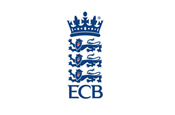
The EPL, which is due to launch in 2010, will adopt the game's abbreviated format, Twenty20, which has proved popular with fans internationally. The ECB wants to attract a blue chip partner to emulate the success of title sponsorships for England's top domestic football and rugby leagues.
ECB commercial director John Perera said securing a title sponsor, as well as second-tier backers, was a 'work in progress'.
'By 2010, we will have a title sponsor situation similar to that of the Barclays Premier League and the Guinness Premiership,' he added. '2010 is the start of all our new commercial contracts. We are looking for a major partner, and there are support opportunities.'
Interest in the game has been sparked by the launch of successful club competitions. Earlier this year, players in the nascent Indian Premier League (IPL) were auctioned to its member clubs for sums of money unprecedented in the game.
In October, the best clubs from England, India, South Africa and Australia will compete in the Champions Twenty20 League.
The following month England's cricketers are expected to receive a financial wind-fall, when the national team plays the first in a series of Twenty20 matches versus the Stanford All-Stars XI, made up of West Indian players. The prize for each game, funded by Antigua-based billionaire Allen Stanford, is a share of $20m (£10.1m).
Cricket financial performance
- In December, the ECB announced an annual turnover of £93m for 2007, up from £77m in 2006. Its profits were £8.9m compared with £7.3m in 2006.
- According to ECB commercial director John Perera, about 75% of the ECB's commercial revenue comes from the sale of broadcast rights, with the remainder accounted for by sponsorships, licensing deals and other commercial activities.
- The income of the ECB varies from year to year dependent to a large degree on whether an Ashes series between England and Australia has taken place.



.jpg)
.jpeg)
